The year it all linked up
- Published
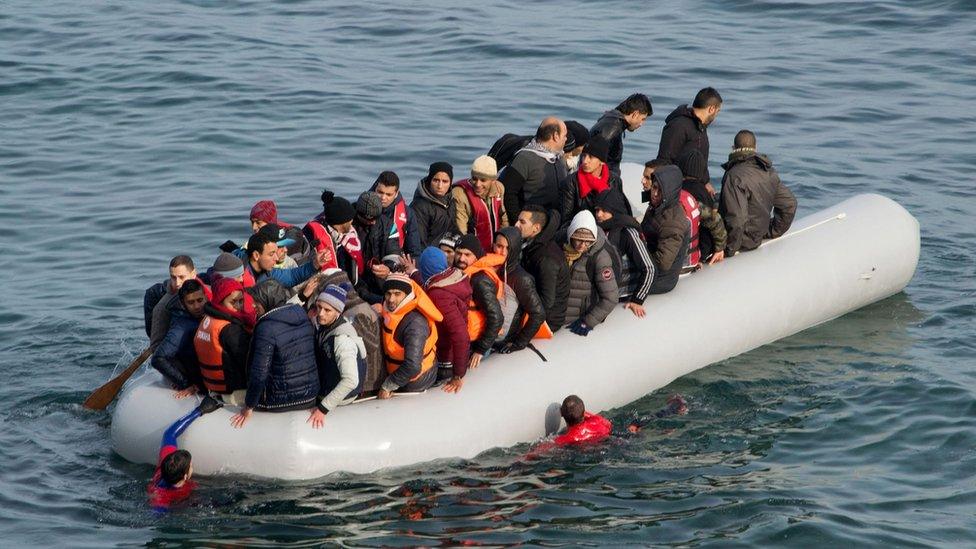
"Only connect." When EM Forster, external urged us to "live in fragments no longer" it was a hope for the future, not a curse.
But it is not a bad epitaph for a year when globalisation bit back and the biggest news stories tumbled into each other, growing like a malign crystal.
Migration and terror. Borders and bombs.
Syria's civil war, external is the cauldron where the turmoil brews, the new power base for jihadists, external thriving in the chaos as a brutal government, external clings to power.
The numbers fleeing have gone on growing, external. It is not surprising. Many Syrians may feel almost anywhere may be better, but Europe is the promised land.
Even at a time when Europeans doubt their continent, it is largely free of war between its component states, and thus full of milk and honey.
Secondly, Syria has been a Petri dish for the latest evolution of jihadist radicalism, seemingly more brutal, more territorially adept than its predecessors.
The old archenemy, al-Qaeda, seems almost benign by comparison, external, in the popular imagination at least.
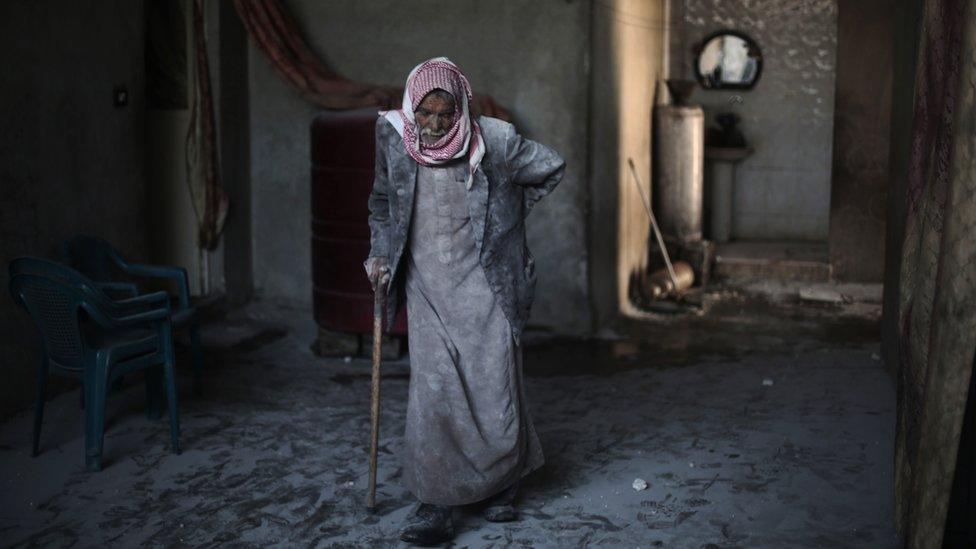
The war in Syria has been devastating
Boko Haram may have killed more people, external, but it is so-called Islamic State (IS) that haunts Western politicians, like the so-called Dark Lord in Harry Potter, his very name so powerful that it must not be uttered.
That power may stem from the fact that some of its enthusiastic fighters come from European countries, in particular the UK and France, driven to kill, they say, by their belief that the West is in a war with Islam, or at least their brand of it.
What happens in Syria fires the ire and imagination of those inclined to despise their European home. The territorial aspiration of IS - that would be the "state" bit - means that the rulers of the self-declared caliphate welcome this migration in reverse.
Europe is staggering
But it is the sight and plight of the refugees flooding from Syria that has had such a huge political impact.
They risk death in the Med, our sea, chaotically straggling across the European continent, calling the very notion of the European Union into question.

The EU was only just recovering from the seismic shock of the Greek crisis, external and the near-death experience of the euro, one of the most treasured symbols of European unity.
Now, countries that once gleefully tore down the walls are putting up barbed wire fences, external.
Countries that gloried in the symbolism of joining a bloc where passports had become as quaint as the horse and cart are now talking about new borders.
It is another blow to another precious expression of European togetherness. The EU is staggering. Once on its knees, it may not easily rise again.
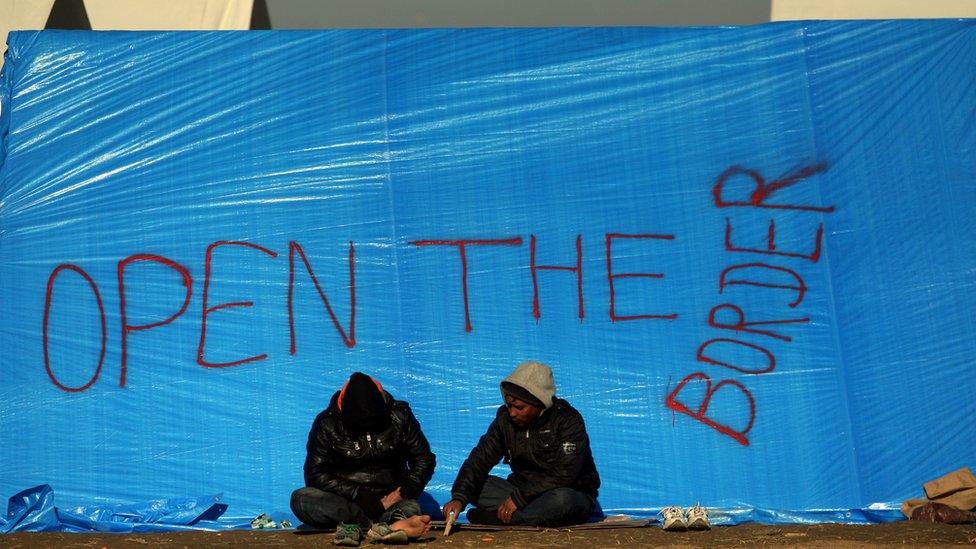
Open borders is once again an issue in Europe
German Chancellor Angela Merkel is lauded by Time magazine, external - but her generosity to the refugees has left many of her voters questioning her wisdom, while admiring her motives.
It is quite an achievement to get a nine-minute ovation at a party conference that wanted to eviscerate her policy, but it would be foolhardy to think that the crisis is over for her and for Germany.
The migration crisis plays indirectly into the UK's looming vote on membership of the European Union.
We are an island, and Prime Minister David Cameron would rather court the voters and keep most refugees out than be Time's man of the year.
But those who want the UK to stay in the EU are alarmed that the continual focus on waves of people moving across Europe won't exactly help them win.
Wars and their ripples
The other blow to European self-confidence came from the East and Russia. President Vladimir Putin was emboldened by a highly successful confrontation over Ukraine, external. So much so that he made the bold decision to intervene outside the borders of the old Soviet Union for the first time since the fall of that superpower.
His bombing of Syria, external, perhaps unlike those of the UK and other US allies, really has changed the dynamic. The possibility of President Bashar al-Assad's fall and the triumph of those elusive Syrian democratic moderates seems even less likely.

Of course, many wars create waves beyond their borders, and ripples far away. But this is new, and the world has changed.
It has been shrunk as much by social media as "globalisation". When you can instantly send a picture back from Athens or Berlin to a refugee camp or a shattered city you left only weeks ago, the lure to those who remain becomes stronger. The journey, however hard, however fatal, becomes within reach of the imagination.
Within minutes of a murderous attack, we are checking Twitter to see what is being said about it in Syria. The time to think, to reflect, to react has contracted from weeks to hours.
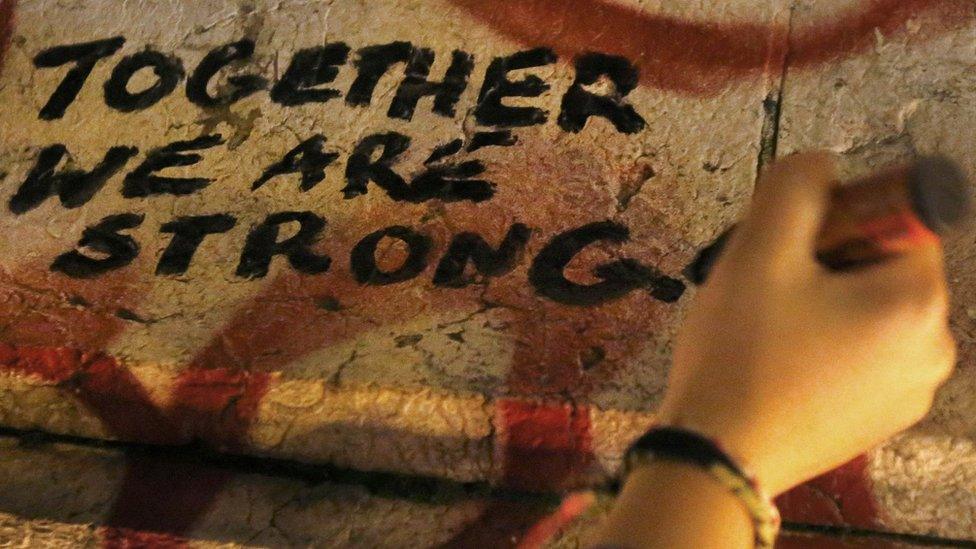
The Paris attacks led to an outpouring of sympathy around the world
Killers inspired by Syria attacked Paris, and within two and a half weeks MPs in London voted to extend military action from Iraq to Syria.
Failed ambitions
It is not just technology that links up these problems.
The fact of the European Union's existence is important too.
It provides a measure for its own failure, external.
For months, politicians seemed stunned, barely doing more than staring slack-jawed at the bedraggled masses.
It has taken months to muddle towards even a halfway coherent policy, external - while actually implementing it remains a distant pipedream.
This would disgrace a nation state, let alone a super-state.
It underlines the fact the EU is neither, and isn't quite sure what it wants to be.
It is creaking under the weight not just of its own ambitions, but its conspicuous failure to live up to them.
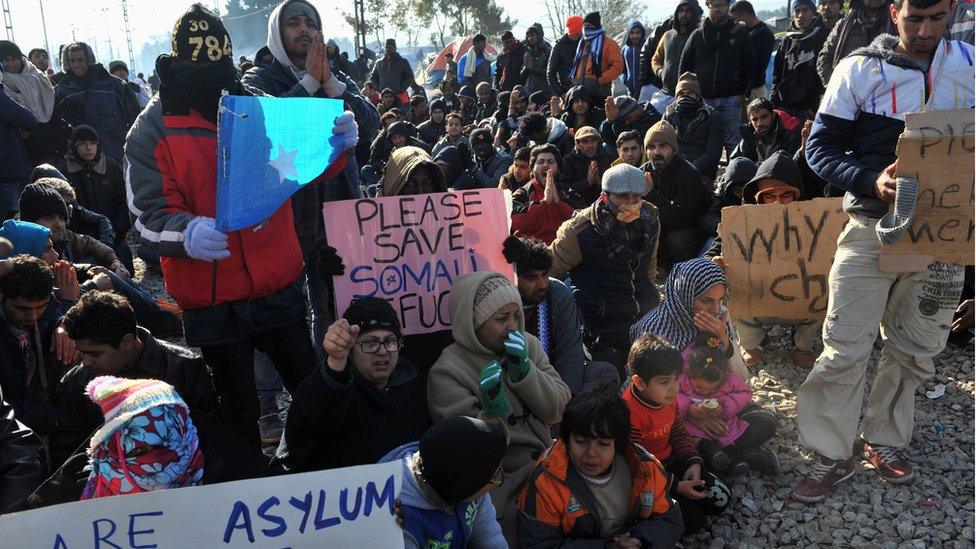
The EU has struggled to form a coherent policy on how to deal with migrants and refugees
Syria: One goal, different views
We're also moving into a new era of national assertiveness, as the last shackles of Cold War lethargy fall away.
Syria exposes the rifts. IS is, of course, every nation's declared archenemy. But a shared global threat has not muted national interest.
Countries all add a compromise-killing caveat to their war on terror:
For the US and European coalition, the enemy is IS plus President Assad
For Turkey, external, it is IS plus the Kurds
For Saudi Arabia, it is IS plus Iran
For Russia and Iran, external, it is IS plus anyone else fighting President Assad
The fear of IS and the desire to crush it is shared and real. But the intention is hobbled by particular views of the world that collide.
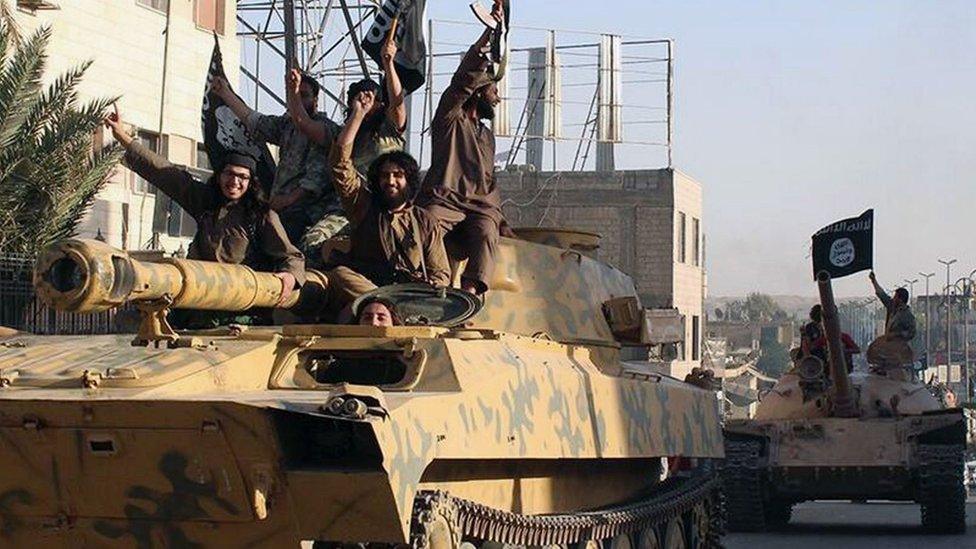
Islamic State is the common enemy
Most British, French and American politicians would strenuously deny they believe they have the moral right to reshape the region, but nevertheless want the current ruler and his most effective opposition to both disappear.
Exporting a revolution?
Some feel debate about the wisdom of this enthusiasm for hard power is kept carefully from the mainstream - it is regarded as an obscenity akin to shouting "Hitler" in a crowded room to argue that jihadist terrorism here is a reaction to Western foreign policy there.
President Putin's view is a very clear counterpoint, oft repeated and usually completely ignored in the US and Europe.
He argues that in Ukraine and Syria, the West has attempted to export a revolution and impose a political system.
He does not accept that the revolutionaries are anything more than useful tools of the West.
That their targets are kleptocratic rulers of quasi-democracies under crony capitalism does not escape his hunter's eye.
Saudi Arabia and Iran, like the lion and the unicorn, run their proxy battle up and down the Middle East, an extension of a centuries-long religious, political and cultural clash. Neither make happy partners in a war against violent, bigoted extremism.
EM Forster's creed is a wise one if the politicians and their policies are connected, but for now it is only the problems that seem joined up.